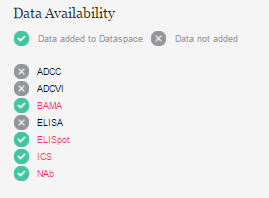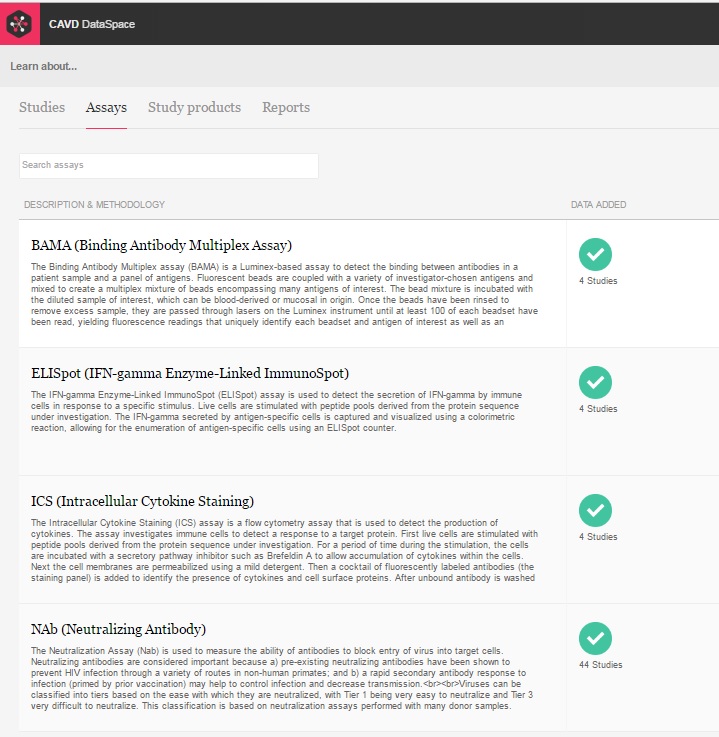Better annotation so studies and data are easier to find
Looking for a study you just heard about, but don't know the study number? Now it's even easier to find the studies and data you're looking for. You can now search, sort, and filter the list of studies in Learn About by different study characteristics like PI, study type, species, products, and whether data is available in DataSpace. We even added a new category to indicate vaccine strategy to help your search. .

Vaccine strategies
The Vaccine Strategy category defined for used in DataSpace typically refers to the type, or class, of products being administered individually or in combination, e.g. DNA, proteins, viral or bacterial vectors, virus-like particles (VLPs), or prophylactic neutralizing antibodies. Each strategy has an underlying approach designed to engage an immune response, either by blocking the infection (antibody response) or destroying infected cells (cell-mediated response).
CAVD studies can be associated with a given strategy, even when they don’t involve the administration of a product. As an example, many studies under the strategy, “prophylactic neutralizing antibody”, are not passive immunization studies where prophylactic antibodies are being infused, instead, they evaluate the neutralization activity of monoclonal antibodies to determine if they are broadly neutralizing antibodies (bnAbs) that would be good candidates for a passive immunization regimen in subsequent studies.
How can you tell if a study has data in DataSpace?
Just look for the green check mark. On the study listing in Learn About, the green checkmark tells you there is data for at least one assay available in DataSpace. Hover over the check mark to get more details about which assays have been added. Go to a specific study page and you'll see a new Data Availability section where all the assays performed in the study are listed. The green check mark tells you which ones have been added. Hover over these check marks to see the status of the assay.

You'll see that check mark in the Learn About - Assays and Products, too, but in this case it tells you which studies have data for that assay or product.

.
